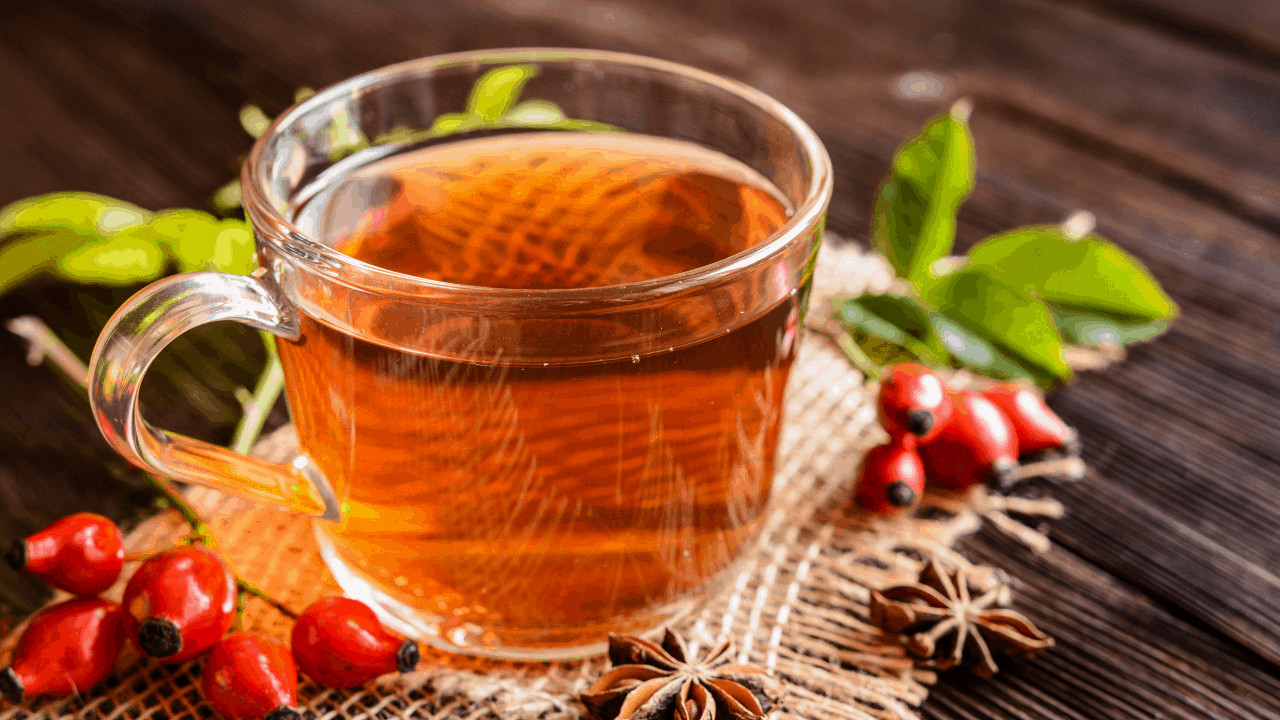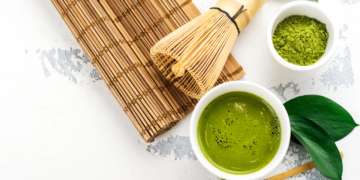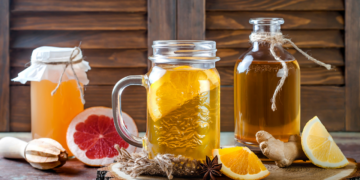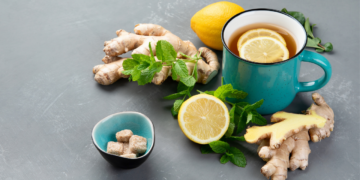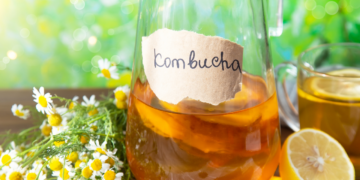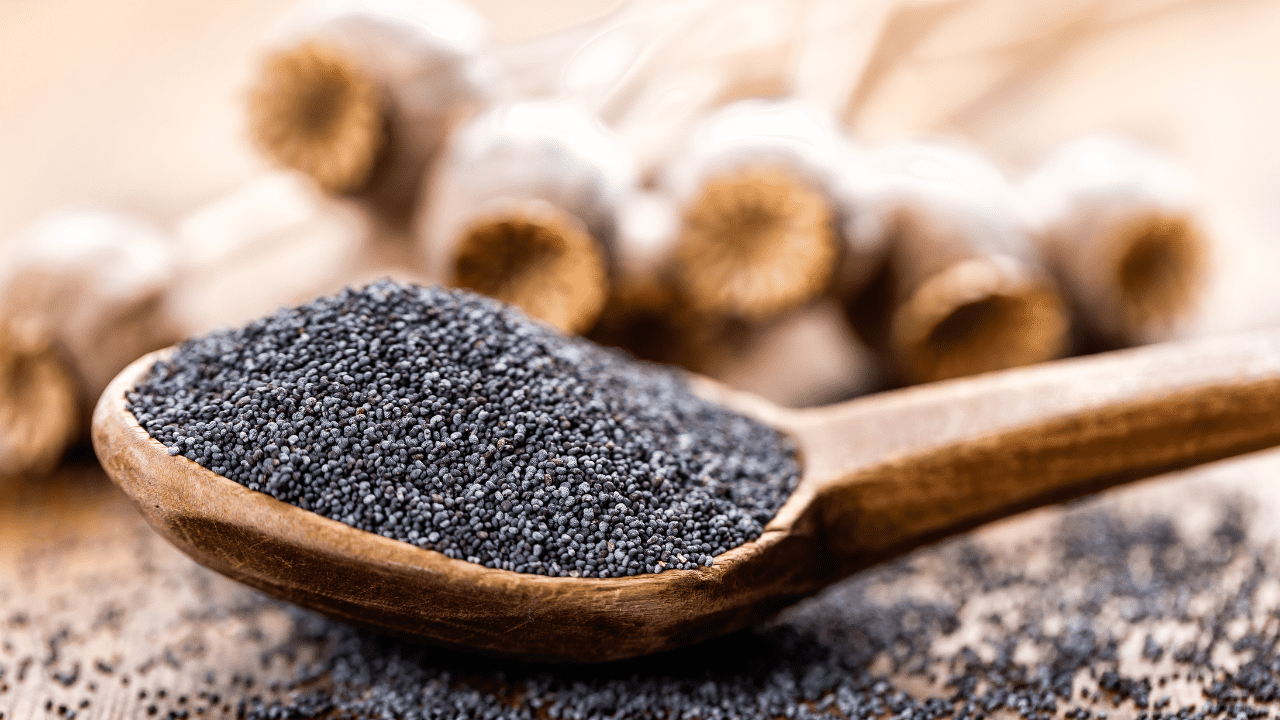
Herbal teas have been consumed for centuries, not only for their taste but also for their wide range of unique health benefits. There are hundreds of teas out there to choose from that taste good and do good things for your body, and Rosehip tea is a worthy contender. In this article, we’ll examine the benefits of Rosehip tea, along with some suggestions on drinking the floral tea, so read on to learn more.
What is Rose Hip?

Rose Hip is the fruit that grows on the rose plant called Rosa canina. There are several thousand species of rose plants, so rose hips don’t grow on every rose flower. It is usually small in size and a brightly colored red, thanks to the antioxidant procyanidin. It is used for teas, jams, syrups, soups, bread, and even wine.
Can You Eat RoseHips?
While it is possible to eat rose hips raw like a berry, the fruit contains hairs on its body that do not make for a good experience. For this reason, most people ingest rose hips by some other method, including teas, powders, or extracts.
Is Rose Hip Tea Good For You?
Rosehip tea is widely considered a “healthy” drink thanks to its natural ingredients and many health benefits. Let’s take a look at some of the benefits you can get from drinking this tea.
Gives You Plenty Of Antioxidants

Antioxidants are crucial to a healthy diet. They are protective compounds in food that help to keep the body safe from cell damage caused by free radicals. When you eat foods rich in antioxidants, you help protect your body from some cancers and other chronic conditions, along with reducing inflammation.
Rosehip has been shown to have a relatively high antioxidant content. Like other herbal teas, Rosehip tea provides plenty of polyphenols and carotenoids.
Studies suggest that dried rose hips actually provide fewer antioxidants than fresh rose hips, so it’s usually best to brew raw, fresh rose hips for the most health benefits.
Supports Your Immune System
Rose hips have an impressively high amount of vitamin C. Some studies have suggested that they contain one of the highest amounts of vitamin C among all fruits and vegetables.
Vitamin C is crucial for the healthy functioning of the immune system. This vitamin helps to produce white blood cells, improve the function of the lymphocytes, and protect the skin against external pathogens. Essentially, this vitamin helps us to ward off viruses and illness.
Rosehips contain vitamins A and E, both of which have been shown to improve the function of the immune system.
Protects Against Heart Disease

Antioxidants are protective for the heart and cardiovascular system, and thanks to their high content, Rosehip tea can be a great way to add more antioxidants to your diet. Vitamin C, a nutrient that we have already discussed, can be helpful in protecting the heart. One study showed how vitamin C is particularly useful for combating LDL cholesterol, thus keeping the arteries and heart healthy while helping to regulate blood pressure.
Flavonoids are another antioxidant group that is found in Rosehips. Flavonoids have been linked to blood pressure reduction and improving blood flow through the body.
Supports Weight Loss

If you are trying to lose weight, Rose Hip tea might be an excellent way to support your diet and exercise plan. Rosehips also contain the antioxidant tiliroside, which has been linked with fat-burning and reduced obesity levels. One study showed how 12 weeks of eating rose hips resulted in a decrease in weight and an increase in fat reduction in adults.
May Help Prevent Type 2 Diabetes

Type 2 diabetes results when the body develops insulin resistance or cannot produce enough insulin to lower blood sugar. The result is high blood sugar levels. With diet and lifestyle modification, type 2 diabetes can lead to many other chronic health conditions and is mainly preventable (but not always).
Several studies have linked Rosehip consumption to protect against some of the risk factors for this disease. For instance, one study found that Rosehip powder could create a significant decrease in blood sugar levels.
Do note that current studies are focused on using rosehip extract, so little research exists on the benefits of rosehip when it’s brewed in tea.
Can Help Reduce Inflammation & Pain

Rose Hips contain polyphenols and galactolipids, both of which have been shown to have anti-inflammatory effects. This makes Rose Hip tea a great beverage to combat mild cold symptoms resulting from inflammation, such as a sore throat or cough. Some studies have suggested that it can even help with joint inflammation and reduce chronic pain for some patients.
Can Help Keep Skin Looking Young

Collagen is a naturally occurring element of the skin. It’s responsible for keeping the skin elastic and youthful. However, as we age, our collagen supplies begin to dwindle, resulting in wrinkles and loose skin.
Rose Hips contain a compound called carotenoid astaxanthin, which has been shown to prevent collagen breakdown. This means that Rose Hip tea may help your collagen supply last longer, thus resulting in youthful skin for a longer time.
Does Rose Hip Tea have Caffeine?
Because Rose Hips are a fruit, tea made from this fruit is naturally caffeine-free. This means that you can enjoy the beverage at any time of day without having to worry about any of the adverse side effects that can come with caffeine, such as jitters, shakes, or anxiety.
Rose Hip tea is often touted as an excellent replacement for green tea or even black tea in the afternoon and evening since green and black tea contain moderate amounts of caffeine (about 40 mg per cup).
Can You Drink Too Much Rose Hip Tea?
As with almost any food or beverage, there will come the point where you get too much of a good thing. A few studies have shown that eating too many Rosehips can result in stomach pains and digestion problems, likely in part due to the high vitamin C content. You may even experience symptoms such as nausea, upset stomach, or heartburn.
Vitamin C in excess can also be harmful to people with kidney stones, sickle cell anemia, or an iron deficiency.
It’s also unclear whether Rose Hips are safe for pregnant or breastfeeding women, so it is recommended that pregnant women avoid the tea.
When Should You Drink Rose Hip Tea?
Because Rose Hip tea is naturally caffeine-free, it’s perfectly safe to drink at any time of day without having to worry about being kept up all night. With its delicate, flowery flavor, many people enjoy this beverage early afternoon or mid-morning.
What Are the Best Brands of Rose Hip Tea?
- Davidson’s Tea – Davidson’s sells loose leaf Rose Hip tea that is easy to infuse. The dried berries and tea contains all of the fantastic benefits and distinctive flavor discussed in this article. Davison’s even suggests that you can eat the tea leaves after brewing to get even more benefits.
- Tealyra -Pure Rosehips – This brand prides themselves in sourcing authentic organic teas direct from origin. This particlar tea sourced from bulgeria will not disappoint as it is made with the best Rose Hip berries available. The aroma is similar to goji berries and brown sugar.
- Traditional Medicinals Rosehip Tea – This organic blend is delicious and super healthy. This company harvests and picks the berries by hand for the very best results and freshness.
- Buddha Teas Organic Rose Hips Tea – This well-reviewed Rose Hip tea is a delicate infusion you are bound to enjoy. It is sold in teabags so it is easy to make a cup quickly. The brand uses only natural, carefully selected ingredients.
How To Make Rose Hip Tea At Home

If you can get your hands on some fresh or dried Rosehips, you can brew your cup yourself.
- Spoon out a few tablespoons of the berries into a tea infuser, then pour in hot water.
- If you’re using dried Rosehips, use a spoon to crush them up before pouring the water.
- Let the tea steep for 15 minutes for best results and flavor.
- Strain, and enjoy
Final Thoughts
Rose Hip tea has many great benefits. You’ll get some real benefits by including the beverage in your tea routine. The great thing about Rose Hip tea is that you can drink it at any time of day or time of year.
Rose Hip Tea is also straightforward to make at home with fresh or dried berries from the rose plant. Just make sure you are sourcing from the correct plant and avoid anything sprayed with chemicals or pesticides.
What’s your favorite herbal tea? Have you tried including rosehip tea in your routine yet?

